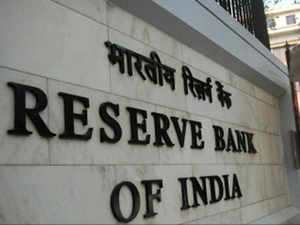
Reserve Bank’s MPC meeting ahead of its schedule in April, amidst adverse impacts on the market of the COVID pandemic, voted for a 75 bps (one bps in 0.01 per cent) reduction in the benchmark repo rate to 4.4 per cent.Mumbai: Monetary policy by itself may not be effective in mitigating the economic crisis created by the COVID pandemic in a demand deficient economy like India, according to MPC member Chetan Ghate who voted for only a 50 bps points cut in repo rate against a 75 bps reduction vote by the majority. Instead he called for wider structural reforms along with tax stimulus for the revival of the economy from the COVID- induced slowdown.
A severe rate cut would not help when the demand in the economy is deficient, instead a fiscal stimulus package from the tax side would help revive the economy, Ghate indicated in the minutes of the March meetings of the monetary policy committee, released by the Reserve Bank on Monday. “In a demand deficient economy, a large rate cut, however, will be akin to pushing on a string. I have been raising this concern in several previous policy reviews justifying the need for more structural reforms” said Ghate, professor at the Indian Statistical Institute.
The Reserve Bank’s MPC meeting ahead of its schedule in April, amidst adverse impacts on the market of the COVID pandemic, voted for a 75 bps (one bps in 0.01 per cent) reduction in the benchmark repo rate to 4.4 per cent.
The recent Rs 1.7 lakh crore package announcing cash relief to the poor is more social insurance rather than a stimulus, according to Ghate who felt the need to assess the appropriate division of labor between monetary policy, liquidity policy, social insurance policy, and fiscal policy in stimulating aggregate demand.
The recent liquidity infusing measures by the RBI amount to a “carpet-bombing” of the financial system with liquidity and will help flatten yields in those parts of the financial system where fire-sales have pushed up credit spreads, he said.
On fiscal policy, details on a second stimulus package would add more clarity. “The ideal fiscal stimulus to deal with COVID-19 should be loaded on the tax side rather than the government spending side ” Designing this would be a challenge.
Another external member Pammi Dua, also voted for a repo rate cut of 50 bps, but had different reasons “It may be better to conserve some policy space for later, when the economy will require a further boost to recover from the pandemic “she said.
Defending the RBI decision, governor Shaktikanta Das said that the erosion of consumer confidence and investment sentiment can operate in an adverse feedback loop to worsen the growth outlook even further. In this emerging scenario, monetary policy needs to proactively arrest any deterioration in aggregate demand, and thereby create enabling conditions for businesses to normalise production and supply chains.
Source: indiatimes.com

